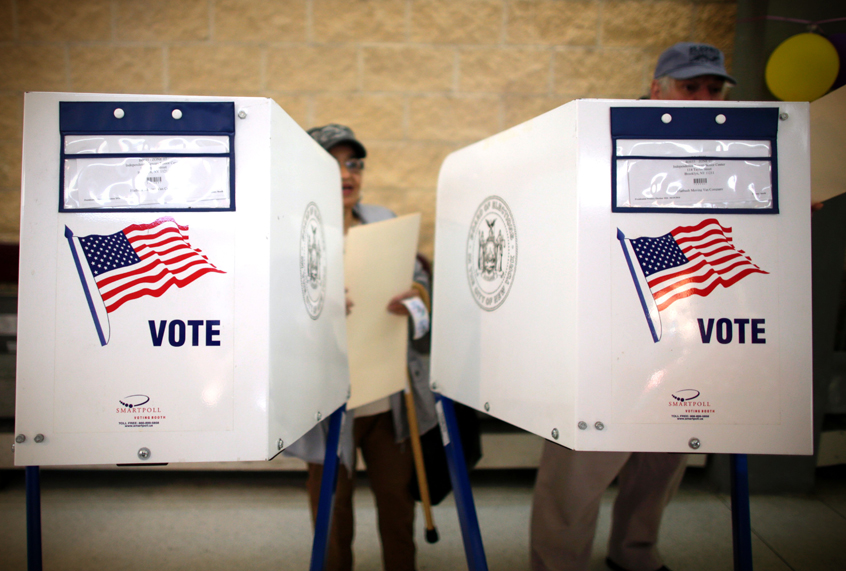A federal court decision may open the door for the Republican National Committee to bring back “ballot security” measures allegedly designed to intimidate minority voters.
The 3rd Circuit Court of Appeals on Monday upheld a district court decision that ended a longstanding order banning the RNC from using “ballot security” measures that have been seen as suppressing minority voters. With President Trump having taken over the RNC ahead of the 2020 election, voting rights advocates are concerned that Republicans will ramp up suppression efforts in the president’s re-election fight.
The order had been in place since 1982, after the Democratic National Committee sued the RNC over “ballot security” measures the DNC claimed had “attempted to intimidate the minority voters” in a New Jersey gubernatorial election and violated the Voting Rights Act.
“Specifically,” the lawsuit said, “the RNC sent sample ballots to areas where a large portion of the voters were ethnic minorities, then asked that the name of each voter whose sample ballot was returned as undeliverable be removed from New Jersey’s voter rolls. In addition, in an alleged effort of intimidation, the RNC hired off-duty law enforcement officers to patrol polling places in minority precincts. The officers wore armbands that read: ‘National Ballot Security Task Force,’ and some carried two-way radios and firearms.”
The RNC agreed to settle the case with a consent decree, which meant that the party’s national leadership would be held in contempt of court if it violated the agreement. The consent decree was modified and extended in 1987 and again in 2009 because of evidence of new violations, Slate reported. The agreement is scheduled to expire on Friday unless the original federal court in New Jersey extends the term.
The DNC attempted to hold the RNC in contempt during the 2016 campaign after alleging that Trump allies attempted to intimidate voters with dubious efforts to combat “voter fraud.” A court decided that the Trump team was not acting in concert with the RNC but agreed to let the DNC present evidence of violations.
Democrats have since argued that Sean Spicer, who worked for the RNC during the 2016 campaign before briefly serving as Trump’s press secretary, violated the consent decree by stationing himself among Trump campaign poll-watchers at Trump Tower on Election Day, Politico reported. The court has been skeptical of Democrats’ arguments and will let the consent decree expire on Friday.
With the consent decree gone, the RNC can once again return to voter suppression tactics under the guise of combating “voter fraud,” although the DNC could still attempt to have the consent decree reinstated if it presents evidence of violations.
Politico reported that some Republican leaders have urged the party to “drop the voter fraud issue” regardless of the decree because “many minorities view it as a fig leaf for racially charged voter suppression.” This seems unlikely, given that Trump has repeatedly claimed without any evidence that millions of illegal voters cast ballots for Hillary Clinton in the 2016 election.
Ahead of the 2016 election, Trump urged his supporters to “watch” for potential voter fraud in cities with large minority populations.
“If nothing else, people are going to be watching on Nov. 8,” Trump said at a rally in Colorado shortly before Election Day. “Watch Philadelphia. Watch St. Louis. Watch Chicago, watch Chicago. Watch so many other places.”

